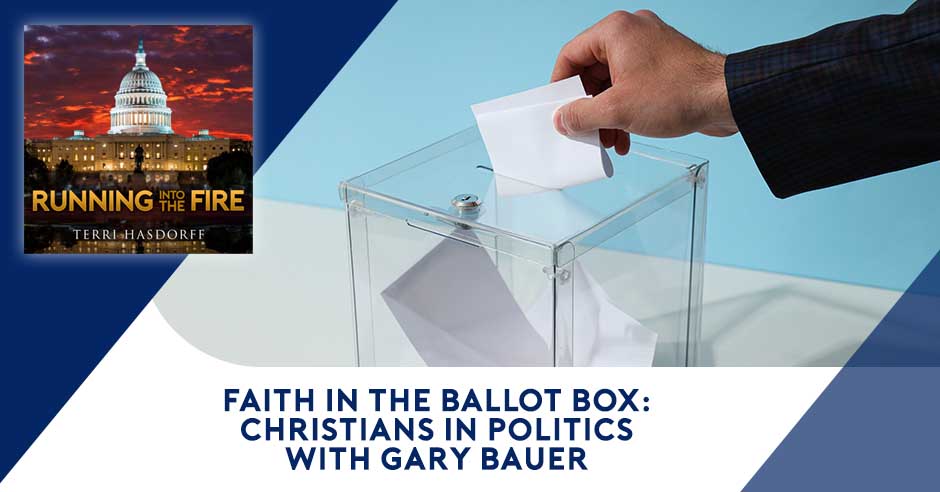
Every silence becomes louder when freedoms are at stake. As Christians, our voices must stand for truth, for liberty, and for the divine right to worship freely. In this episode, Gary Bauer, a fervent advocate for religious freedom and conservative values. He explores the intersection of faith and politics, passionately sharing his disappointment and urgent call to action. His striking analogy paints a vivid picture: we’ve been blessed with a gift—our nation—and neglecting our civic duties is akin to squandering a divine blessing. Tune in now and ignite your passion for defending liberty.
—
Listen to the podcast here
Faith In The Ballot Box: Christians In Politics With Gary Bauer
I’m honored to be joined by our guest, Gary Bauer. Gary was born in Covington, Kentucky, and served in President Ronald Reagan’s administration for eight years as Undersecretary of Education and Chief Domestic Policy Advisor. After leaving the Reagan White House, he became the President of the Family Research Council and the Senior Vice President of Focus on the Family. He ran for president in the 2000 Republican Party presidential primaries and participated in five national debates.
Gary served as a Trump appointee to the US Commission on International Religious Freedom, and now he serves as President of American Values, an educational nonprofit public policy organization. He is chairman of the Campaign for Working Families PAC, which is dedicated to electing conservative candidates to Congress. Gary also serves as Senior Vice President of Public Policy for the Dr. James Dobson Family Institute. Gary, thank you so much for being with us.
It’s my pleasure. It’s great to be with you.
I’m going to jump right in here. We talk a lot about faith and politics on this show. According to a study conducted by the Christian Broadcasting Network, as many as 40 million Christians fail to vote in presidential election cycles, and 15 million are not even registered to vote at all. I’m curious. What are your thoughts on that study?
My first thought was where did I leave my high blood pressure medication? When I hear that, and I have heard those statistics, it’s infuriating and depressing quite frankly. I’ve tried to figure out a way to give Christians who are involved in the process some rationale to rethink their decision not to be involved. One of the things I’ve been talking about is this. Did any of us think that it was a surprise to God when we were born in America? Of course, it wasn’t. God knows where we’re going to be born. We’re born in the place we’re born because God directed that to happen. When we were born here or had a chance to legally immigrate here, we received the greatest blessing that somebody could possibly receive.
If somebody gives you an unbelievable gift, and you don’t take care of it or if you don’t husband it and make sure that it doesn’t get harmed or damaged, you’re an ingrate. I don’t want to be nasty about this, but to my brothers and sisters in Christ, to have this great blessing of being born here and then not do the fundamental things that all of us should do like voting and being part of the debate, you’re being an ingrate to the blessing that God gave you. We’re betraying all the previous generations that came before us and dooming our children and grandchildren to lesser lives. I hope something happens soon to wake up people. It’s important to be in church on Sunday. You need to be in the voting booth on Tuesday.
It’s important to be in church on Sunday, but you need to be in the voting booths on Tuesday.
That’s a great quote. I love that. Let’s talk a little bit about 2024. We have the presidential election coming up. I know people are focused heavily on that right after the holidays. Especially people are going to be thinking about it. What do they need to be doing to prepare? What should they be doing to get ready for what’s coming up?
The obvious answers are things like finding some reliable sources of information like your show and becoming an informed citizen. Let me take a second to suggest something a little bigger. What I said is very important but to begin with, I’m not a prophet. The next twelve months are going to be a rollercoaster ride. Twelve months from now, the country is either going to be dramatically worse than it is now or on the way to becoming dramatically better than it is now.
We’re going to see headlines that are almost unimaginable. We already saw one with that terrible event in Israel on October 7th. It’s a shocking event. Look at all the things that have happened as a result of that one event in the Middle East. Think of the different things that are likely to happen in America over the next year that will probably impact greatly what happens in November 2024.
To prepare ourselves for this ride that’s ahead of us, we need to become stronger, and I don’t mean going to the gym. That’s a good thing too but we need to become stronger from a faith standpoint. We need to strengthen our hearts and souls. We need to have a better relationship with our God. We need to strengthen our families. Another thing that is important leading up to November ’24 is that we have to embrace the truth. We always have to tell the truth.
Men and women of faith are being told to lie regularly. We’re being told that we should call a man a woman or a woman a man. We’re supposed to look the other way when our liberties are being eroded, or we need to buy into all kinds of untruths. We can’t do that. Every time we lie, we become weaker. I would urge all of your audiences to make a resolution now to spend 2024 telling the truth because every time we tell the truth, we will become stronger men and women. It increases the chances that twelve months from now, America will be in a better place.
When you look at the numbers, we spent over $16 billion on this election cycle for 2022. It was the most expensive cycle on record. In every election, the cost of running for office keeps getting higher. We created a new growth industry in an area where there shouldn’t be one. The price that we’re going to pay for that is we’re sacrificing our democracy in some ways. I’m curious. Being a former presidential candidate, what are your thoughts about political spending? What do you think we need to do to get a handle on what seems to be almost a runaway train?
It’s a tough question because, on the one hand, it’s tough to limit campaign spending. All kinds of free speech rights come into play and so forth. On a very personal basis, I sure know the point you’re making, however. My campaign in 2000 was a long-shot quixotic campaign. I was trying to make some points that I thought needed to be made, and I believe I paid off my last campaign debt a few years ago. It’s not for somebody who can’t raise money. Unfortunately, sometimes it takes people who already are independently wealthy and can spend a lot of their money on their campaigns.
I don’t have a good answer to this. I do believe that if an organization is involved in campaigning and is trying to influence the election, the disclosure laws ought to be a lot stronger. One of the things we know is happening is that money is being spent. Nobody ever figures out where that money came from, and that is a problem because it could mean that even foreign interests are spending money to influence our elections in ways that would be disturbing to the American people.
I couldn’t agree with you more. As a candidate for Congress myself in Alabama in 2020, I learned very quickly that the only way that you can counterbalance some of the special interest money that is pouring in usually to these types of races is if more people who are average individuals get involved and give money. I wrote a book called Running Into the Fire, which is about why more Christians need to be involved in politics but I almost named it Less Than 1%, and the reason for that is because that’s the percentage of Americans who gave to political campaigns in the 2016 election cycle.
Less than 1% of the population is putting skin in the game and helping raise money or give money to the campaigns that many times are by people like you or me who are trying to get elected, do it the right way, and be honest. It makes it almost impossible. If that ratio could be changed even a little bit so that more people would start giving even a $25 gift to a candidate who has been well-vetted and is honest, that could make a huge difference.
It has always been frustrating, and it has been this way for a long time, that the left seems to have a lot more billionaires at their disposal than we do. Here’s a note to the Republican Party in Congress. Maybe we shouldn’t be fighting so hard not to raise taxes on billionaires since most of them are liberal Democrats. We tended to do better at the grassroots level with the small donors but now we’re losing there too. There are a number of left-wing groups out there that raise incredible amounts of money in $25 contributions. We have to be willing to do the same.
I say that knowing that, ironically, because of Bidenomics, American families are under tremendous economic pressure. Putting food on the table now costs a lot more than it used to. The very people who are being hurt the most by some of these policies may not have $25 to donate to political candidates who would do something to reverse those policies. It’s a vicious circle.
I would urge people. You should give it to your church first. Give to crisis pregnancy centers. There are a lot of important things to give money to but I would hope that particularly people of faith or Christians would begin to think of political donations if you’ve done your research. In its own way, it’s a form of tithing. If you can elect more people like yourself who are pro-life and pro-family, that’s something that would please God. You can look at it as a gift that will also be helpful to the larger cause of Christ.
You should give to your church first.
I was talking with a political consultant friend of mine and he said this about the liberal left. They think of politics as their religion, and they tithe to it on a regular basis.
There’s no question about it. Some of the specific issues on the left are now seen as almost a religion. The whole climate change thing is dealt with in a way that sometimes religions deal with descent. If somebody questions whether the Earth is going to be on fire in a couple of years, you’re a heretic. You will get thrown out of the church of climate change. It is true that the left sees a lot of these causes as almost their religion.
We’re facing a time where if we don’t speak up, we risk losing everything. In Eric Metaxas’ book Letter to the American Church, he talks about how we are caught up in what the German political scientist Elisabeth Noelle-Neumann dubbed as the spiral of silence. That’s a phenomenon that occurs when people see a culture transitioning toward tyranny but they refuse to speak up. The longer they hesitate, the more the price of speaking rises. As that price then rises, fewer people choose to speak, and then the price rises again and so on until the entire nation can be silenced. He believes that is what is happening in America. I’m curious. What is your opinion about the cancel culture that seems to be taking hold in America more each day?
I was with Eric at the James Dobson Family Institute in Colorado Springs. We both spoke at Dr. Dobson’s annual event where he brings some of his best supporters together. Eric touched on that subject very effectively in the articulate way that he could at the conference. It’s exactly right. There’s a lot of fear among the American people. They don’t want to lose their jobs.
I heard a story about a university student who sent his research paper he was doing for a particular class to his father and said, “Dad, could you take a look at this? I want to make sure I have a great sentence structure and so forth.” His father read it, went back to him, and said, “Son, the writing is great but since when did you start believing these things that are in your paper?” His son said to him, “I don’t believe them but I need an A in this course, and the only way I can get it is by writing what the professor wants me to say.” That is beyond sad. That thing should never be happening in America.
The idea that hardworking families would save their money and send their kids to some college, and the kid has to lie at the college to get a decent grade is disgusting but that is happening more. The cancel culture 99 times out of 100 goes after conservatives, Christians, and people who are pro-life. The best antidote to it is we have to redouble our efforts collectively to speak the truth no matter what the consequences are. If we don’t, we will wake up one morning, and we won’t have the freedom of speech anymore. This is a time for courage. There are things elected officials can do.
All these universities where the cancel culture is the strongest get massive amounts of tax money at both the state level and the federal level. State legislatures need to stand up. Congress needs to stand up, and we need to tell these universities, “If freedom of speech and freedom of assembly are disappearing on your campus when it’s conservative views, we’re going to hold you accountable.”
It seems like our country is closer to socialism than ever. Socialism is about replacing God with government and freedom with tyranny. Those who do not embrace socialism are canceled. Socialism at its core is going to believe that Christianity is a threat. My question to you is this. As somebody who served on the International Religious Freedom Commission, how concerned are you about our religious freedom being in jeopardy right here in the United States? What do you want our audiences to know about why it’s so important for them to make a difference?
In some ways, there are a couple of contradictory things in this whole subject. Let me point them out. On the one hand, ironically, our right to religious liberty is in a stronger position than it has been in 4 or 5 decades at the Supreme Court. The reason is that Donald Trump was elected and had an incredible opportunity in four years to appoint three Supreme Court justices. Those justices now are part of a fairly solid 5 to 6-vote majority on the court protecting religious liberty.
On the other hand, in institutions like universities, public schools, and public squares, the attack on religious liberty continues unabated, and many people of faith bow down. When their religious liberty is threatened, they back off and say, “I’ll change what I said. I won’t recommend that book in my classroom.” If you don’t use a muscle, it atrophies, and you end up being weaker. It’s the same with our liberties. There’s no excuse not to use those liberties because we do have a sympathetic Supreme Court.
I agree with you completely that the freedom of religion, the freedom of assembly, the freedom of speech, and all those things are under attack. It’s important that as Christians we step up, utilize those rights, and know that at the end of the day, if worse comes to worse and there’s a lawsuit, we do have a better situation in our courts than we have had in the recent past.
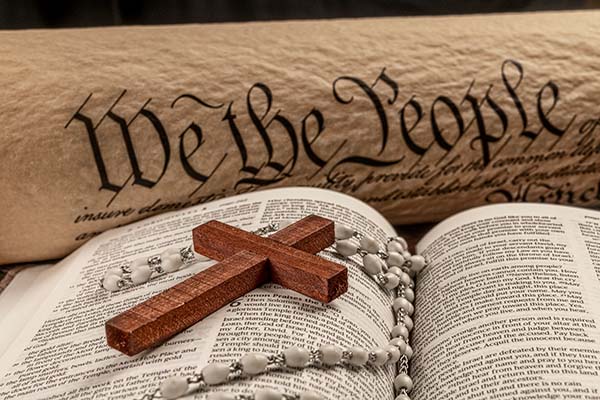
The thing you said in setting up that question, you’re right on target. To socialists, the government is God. They vehemently reject the idea that is in the second paragraph of our Declaration of Independence where it says, “We hold these truths to be self-evident that all men are created equal endowed by their government.” It doesn’t say that. That would mean America was like every other country.
The idea is that our rights came from the government. It says it’s endowed by our creator. That’s the God of the Bible. That’s the God of Abraham, Isaac, Jacob, and Jesus. As Americans, we need to promote that idea and resist the growth of Big Government of socialism that wants to replace God and convince young Americans that the only way they have rights is from government bureaucrats, not from their creator.
You said it so perfectly. One reason why a lot of people get turned off by politics is because of the lack of quality candidates. It’s important to get more good people to run for office yet so often, pastors are trained in seminary school to stay away from politics altogether. When I was considering getting involved in politics as a youngster, I had a lot of people from my Bible study say, “Don’t do that. Why would you want to get involved in politics? It’s so dirty and corrupt.”
It’s great to be so discouraged by your fellow Christians. I have no idea why that happens.
There’s corruption and things that are unsavory in every profession. The mountain of government is something that someone can be called to yet a lot of people in the faith community many times don’t think of that as something that Christians should be more involved in. That’s part of what we talk about here on this show. How do you help someone if they feel like they’re called to serve in politics or be in the government? What can you do to help guide them to get more involved?
First of all, the point you’re making is key. If somebody in our Bible study, somebody that goes to church with us or we interact with in some other way, or somebody in our family said to us, “I’m interested in medicine. Maybe I’ll figure out a way to go back to school. I intend to go to school when I get out of high school,” we would encourage that because you’re saving people. It’s a very noble profession to be in, and so is being involved in the government or elected office because it’s a chance to mold our laws and make sure that our laws are consistent with the beliefs we have as Christians, whether it’s the sanctity of life, what the definition of marriage is or religious liberty, and all these other things that we care about.
You said this in the same way but let me repeat it. Pastors will say, “I’m not interested in the government.” Every time I hear that, I remind them that the government is interested in them. You can’t say, “I’m not going to do anything with the government.” I know that some pastors have convinced themselves, “If I stay in my church, not upset the apple cart, and not do anything that irritates anybody, I’ll be fine. My congregation will be fine.” I hate to tell them this but it won’t because the very thing you’re preaching ultimately is an affront to radical godless socialism. You can have no interest in the government but the government will come to find you.
That’s already happening in Christian schools and other places around the country. The only antidote to that is to make sure that as many men and women of faith and as many men and women who are Christians as possible get elected at every level of the government beginning at your local school board. We have seen that play out in the last couple of years. What happens when there are Christians on the local school board, and you end up finding out that your fourth grader is being taught material about human sexuality by other adults who have a completely different worldview than the worldview you’ve tried to raise your children with? It’s impossible for those of us who are followers of Jesus Christ to be involved in every aspect of American life, including the government.
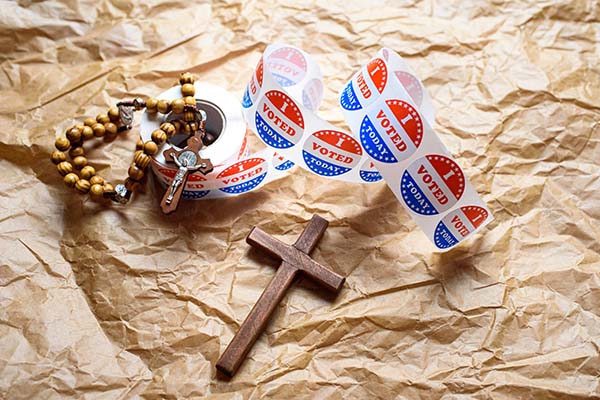
As we wrap up here, what is one final thing that you would like to say to our audiences or one last thought that you would like to leave them with?
I was on the US Commission on International Religious Freedom. Every week, I was reminded of what life is like for Christians in much of the world. We’re going to church, and our biggest complaint is it’s hard to find a place in the parking lot. Christians in Africa, the Middle East, and some parts of Asia will leave very modest homes and walk with their family to little churches knowing that when they walk into those churches, it may be the last thing they do on this Earth with their family because all over the world, every Sunday, churches are bombed. Christians are mowed down by radical Islamists as they leave the church.
As Christians, we not only should pray for our fellow believers but we ought to do a reality check. None of the rights we have can be taken for granted and the first right, which is the right to seek God and worship him as your heart and soul leads you. That’s a precious right. All of us ought to rededicate ourselves to protecting that right and teaching our children and grandchildren how precious it is to be able to seek and worship God.
We ought to do a reality check. None of the rights we have can be taken for granted.
A lot of people come to me and say, “What can I do? I’m just one person.” If you look at the breakdown here in the United States, it can be overwhelming to think about trying to make a difference on a national level but I can make a difference in my county. There are a little over 3,000 counties here in the US, and that’s a more manageable number. If people would start going local and thinking, “What can I do to make a difference with even voter registration?” it’s huge.
There are roughly 168 million Americans who are registered to vote according to the US Census Bureau. In the 31 states that allow for registration with partisan designation, we know that there are 49 million Democrats who are registered to vote and 36 million Republicans registered to vote, and then there’s a lot of independence. If more Christians would get involved with registering others to vote, that could be a huge thing to move the needle in an election.
In the last presidential election, the media said, “It was a landslide.” The fact of the matter was that if a total of 40,000 people had voted differently in Wisconsin, Georgia, Arizona, and Nevada, the election would have been completely different, and the consequences for men and women of faith would have been dramatic. The other thing to remember is that we have been given some examples in the last year of people who don’t sit around and complain but end up taking action.
You have this young lady who was a swimmer at the University of Kentucky, Riley Gaines, who was getting ready to do something else with her life and decided, “I have to take on the transgender movement.” She has been unbelievable, one single young college Christian woman. Kirk Cameron, the former child movie star, decided to start the movement See You at the Library. Instead of being upset at drag queens reading at the library, which he was upset about, he’s urged people to get together themselves to go to their local library and say, “We would like to use the library this coming Saturday to have our reading hour.” Many people are doing that around the country.
We’re seeing examples of what can be done, and it’s not that hard. The left takes advantage of every opportunity they have. Followers of Jesus Christ should do the same. There is not a problem facing America, whether it’s racial reconciliation, restoring American families, or making our streets safer. Nothing you can name is going to be solved unless there is the active involvement of Christian men and women.
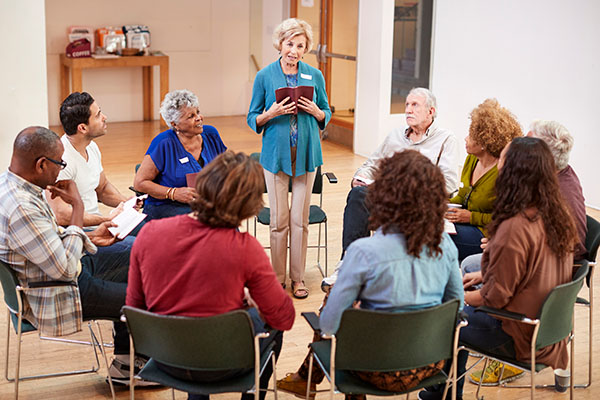
Where can our audiences find you if they want to learn more about what you’re doing?
Thanks for asking. They can go to OurAmericanValues.org.
Thank you again so much for being on the show, Gary. Thanks to our audiences for tuning in.
It’s my pleasure to be with you. Thank you for running for office. I hope you do it again.
Thank you so much. You too.

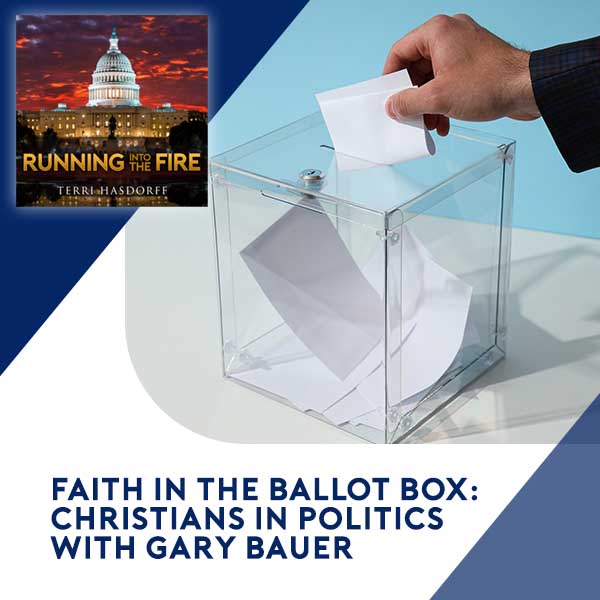
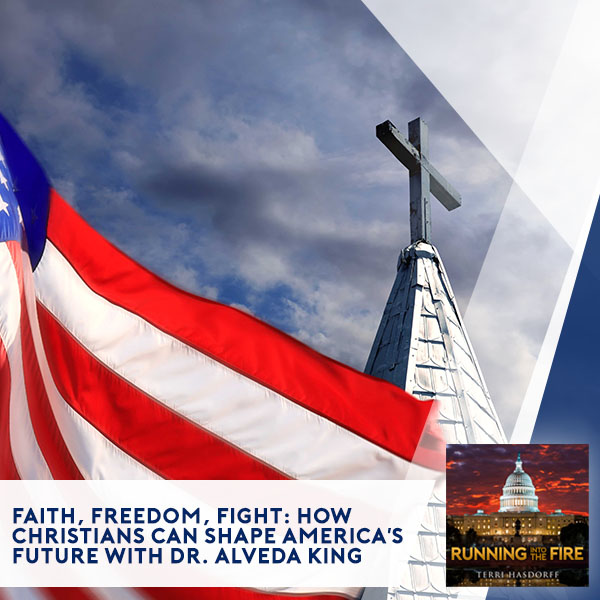
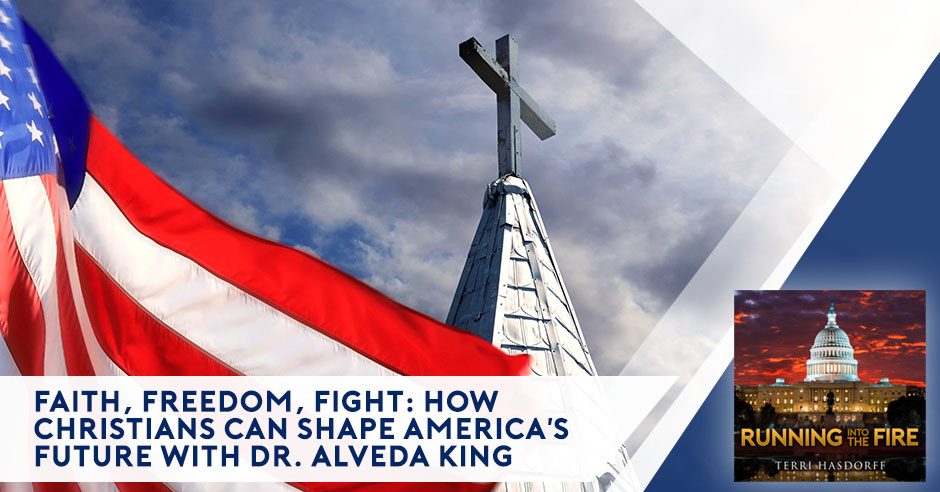
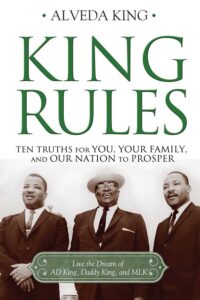

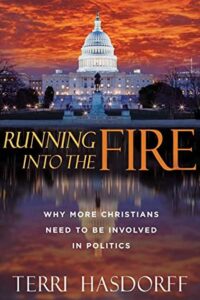
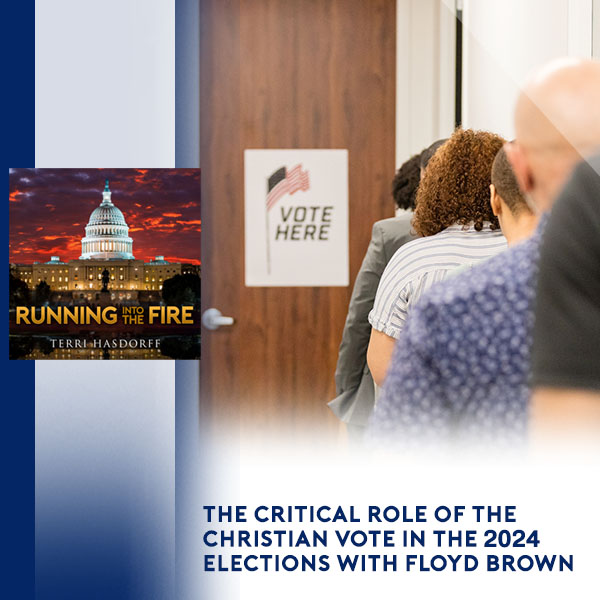
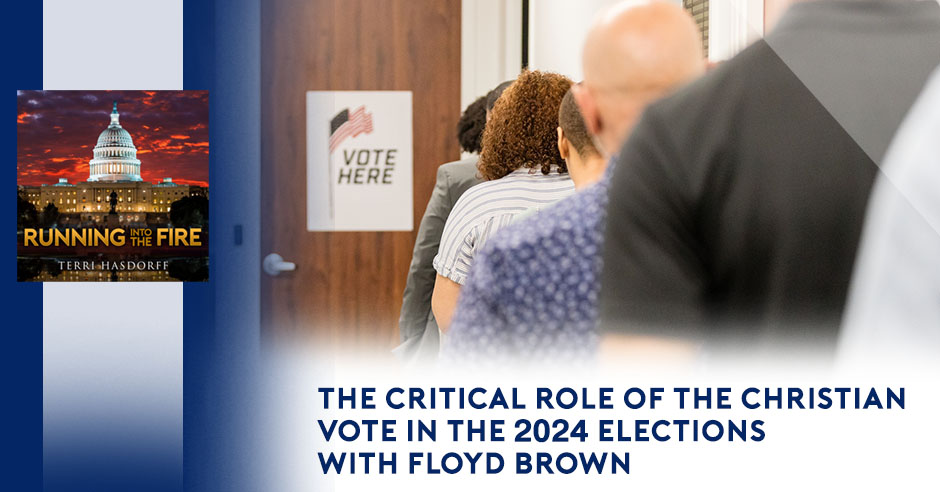
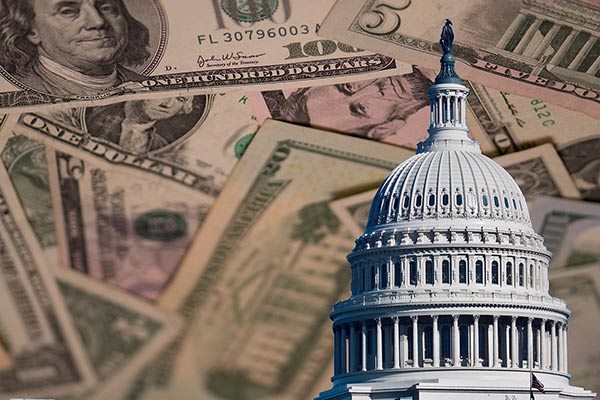
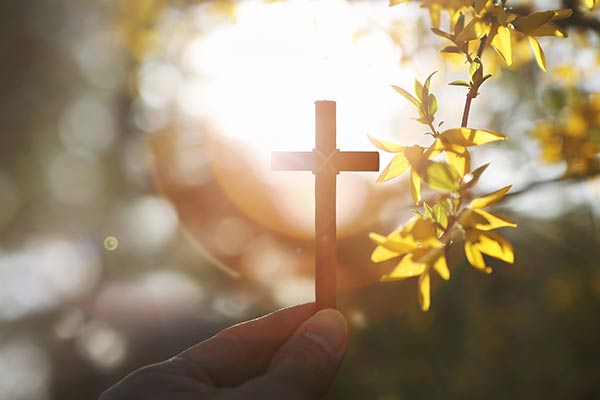
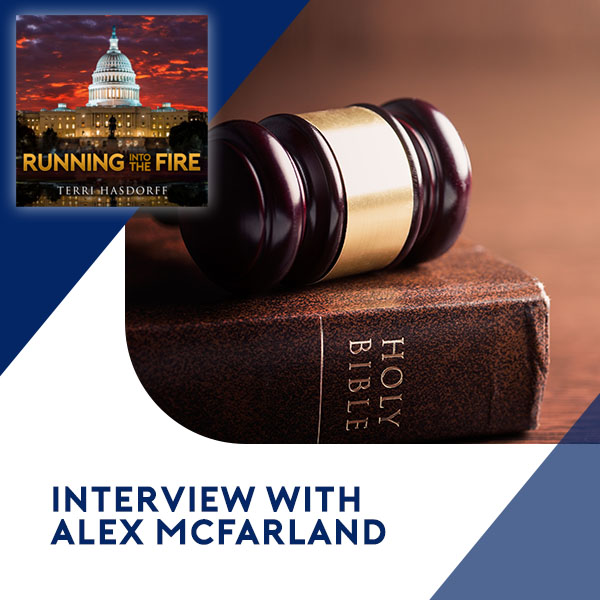
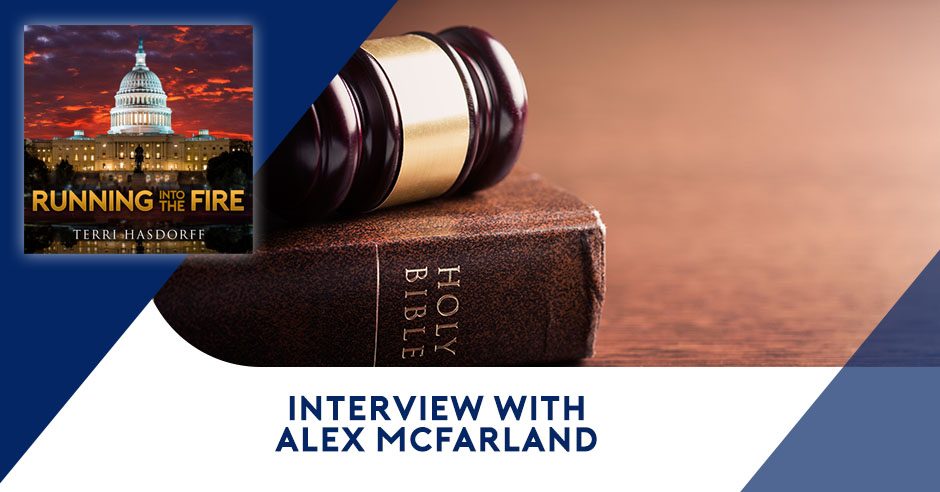
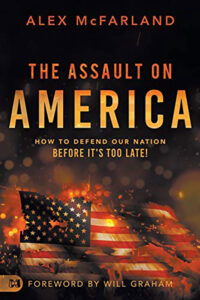
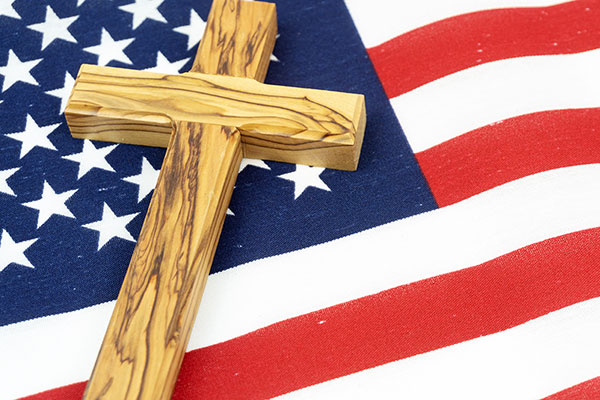

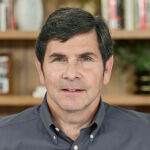 Alex is a Christian apologist, author, evangelist, religion and culture analyst, and advocate for biblical truth. He has preached in over 2,200 churches throughout North America and numerous more internationally.
Alex is a Christian apologist, author, evangelist, religion and culture analyst, and advocate for biblical truth. He has preached in over 2,200 churches throughout North America and numerous more internationally.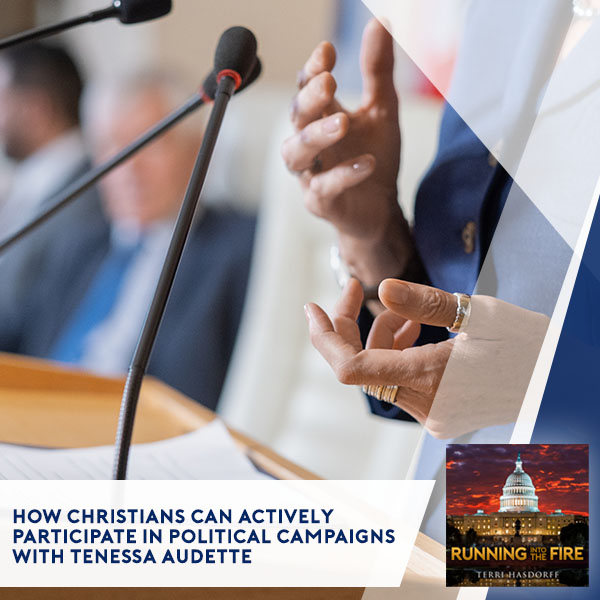
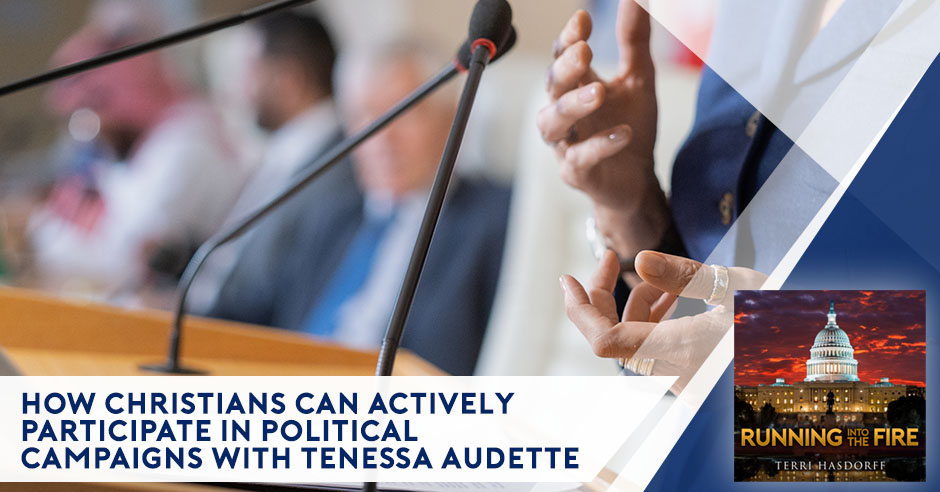
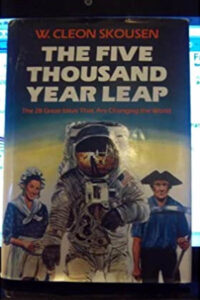

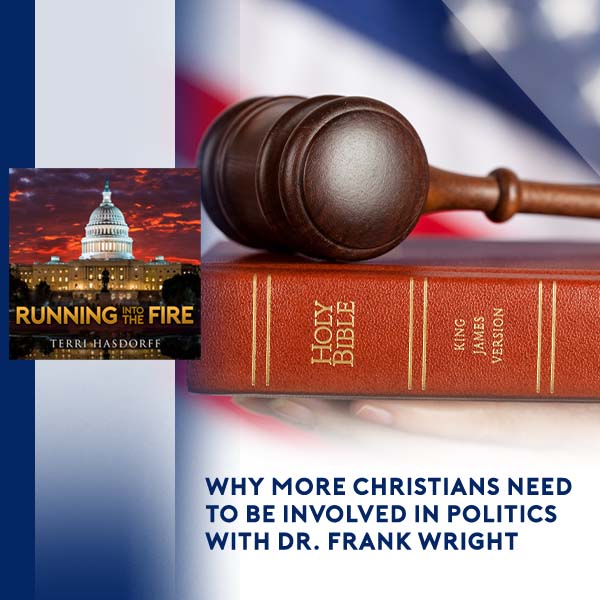
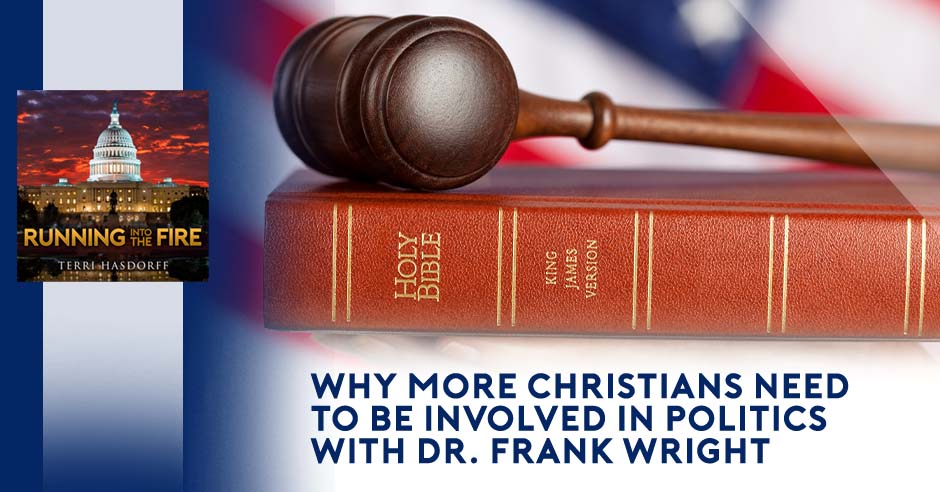
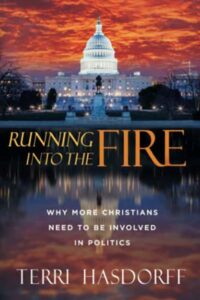
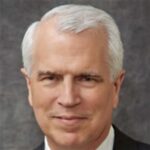 With more than 25 years of experience working on Capitol Hill, Dr. Frank Wright serves as Chairman of the National Religious Broadcasters, the world’s largest association of Christian media communicators. His prior leadership service includes President & Chief Executive Officer of D. James Kennedy Ministries, President & Chief Operating Officer of the Salem Media Group, President & Chief Executive Officer of the National Religious Broadcasters, and founding Executive Director of the D. James Kennedy Center for Christian Statesmanship.
With more than 25 years of experience working on Capitol Hill, Dr. Frank Wright serves as Chairman of the National Religious Broadcasters, the world’s largest association of Christian media communicators. His prior leadership service includes President & Chief Executive Officer of D. James Kennedy Ministries, President & Chief Operating Officer of the Salem Media Group, President & Chief Executive Officer of the National Religious Broadcasters, and founding Executive Director of the D. James Kennedy Center for Christian Statesmanship.